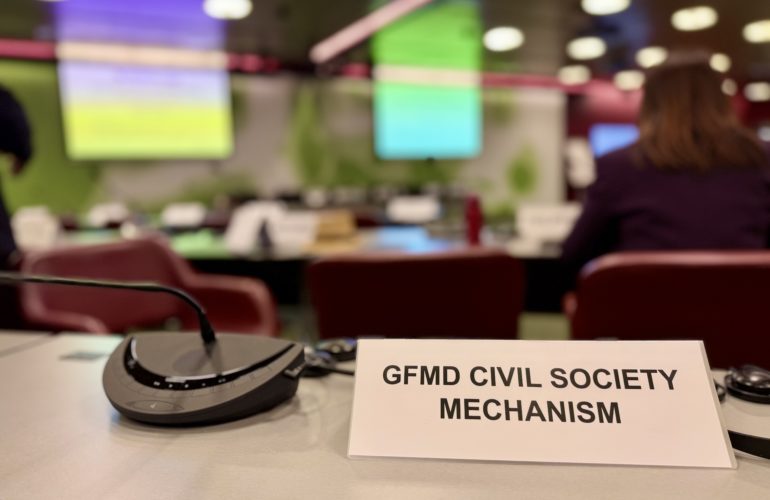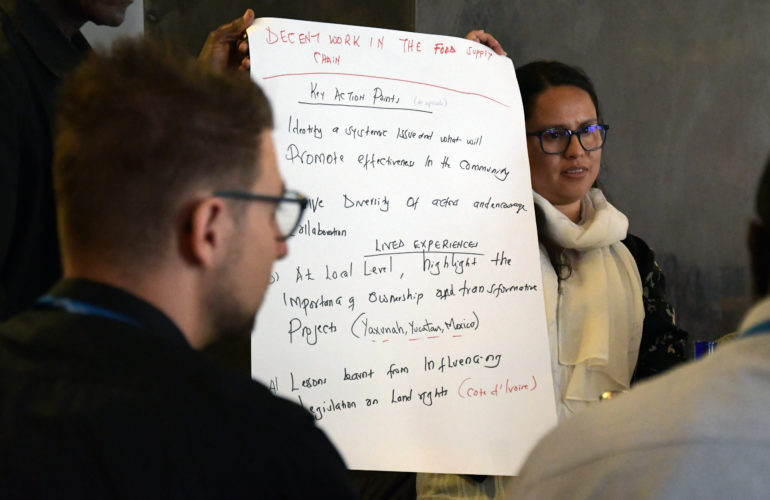ICMC Joins Civil Society Call for Long-Term Solutions for Ukrainians in Europe
As the formal end of temporary protection arrangements for displaced Ukrainians in Europe approaches, ICMC Europe’s Share Network joins a coalition of 110 civil society organizations advocating for long-term solutions.

Read the full statement by ICMC Europe’s Share Network.
Following Russia’s full-scale invasion on 24 February 2022, Ukraine remains at the center of one of the most significant conflicts in modern Europe. The war has led to widespread destruction, a deepening humanitarian crisis, and considerable displacement both within and outside the country.
Approximately 6.9 million Ukrainians have sought protection outside of the country. The vast majority (6.3 million) are now living in Europe, with Poland and Germany hosting around a million persons each. A further 3.7 million people remain internally displaced within Ukraine, unable to return to their homes due to ongoing conflict and insecurity.
Emergency Protection for Ukrainians in Europe
On 4 March 2022, the Member States of the European Union activated the Temporary Protection Directive(TPD), a legal framework designed to provide temporary legal residency and protection in the event of a mass influx of displaced persons in Europe. TPD protections include the right to reside, work, study, and access healthcare and social assistance. More than 4.3 million Ukrainians in Europe currently benefit from TPD status.
Although the TPD was established in 2001, its activation in March 2022 was the first time that its provisions were used in response to a large-scale movement of refugees into the EU. The TPD provided these protections for an initial period of two years, later renewed for a further two years until March 2026.
From Emergency Measures to Long-Term Protection: Civil Society Recommendations
The expiration of TPD protections in less than 12 months raises several concerns about the current and future situation of Ukrainians living in the EU. On 4 March 2025, ICMC Europe’s Share Network* joined a coalition of more than 110 European civil society organizations issuing a joint statement highlighting these concerns and making recommendations for measures to ensure long-term protection for Ukrainians in the EU.
The statement highlights how uncertain future legal status affects all aspects of the lives of Ukrainians living in Europe, including housing, employment, education for both children and adults, and access to healthcare and other social assistance. Some EU Member States are addressing this issue by developing strategies to transition from temporary to longer-term protection for Ukrainian residents on their territories, focused mainly on labor-based residence permits. As the statement highlights, a labor-based approach excludes a plethora of other groups, including students, those living with disabilities, and the elderly.
As the humanitarian situation in Ukraine remains dire and the country’s future uncertain, the joint statement recommends transitioning away from emergency measures and toward longer-term, more permanent solutions. The key civil society recommendations are:
- A coordinated and collective EU solution, providing a durable status and clear pathway to long-term residence. Such an approach should be supported by strong EU leadership and coordination to prevent fragmentation and mitigate the risk of individuals falling into irregular status.
- A proposed one-year extension of the Temporary Protective Directive to be considered only as an exceptional and interim measure, to prevent displaced individuals from becoming undocumented or losing access to employment, education, housing, and healthcare. If a one-year extension is deemed necessary, it should be accompanied by proposals providing further clarity on long-term protection and residence for displaced Ukrainians.
- States should continue to maintain support for displaced Ukrainians, ensuring unrestricted access to TPD rights and protections, and upholding their obligations not to prematurely return persons to a situation in which they will be at risk.
The statement emphasizes the urgency of working to develop a coordinated transition out of temporary protection, to avoid a one-year renewal of the TPD as the only remaining option. Quick action will allow policymakers to ensure protection for displaced people and define the measures and solutions needed to ensure long-term stability.
***
* Established in March 2012 by ICMC Europe, the Share Network supports European regions, cities, towns, and rural communities to welcome refugees and migrants. The network also conducts research to support policymaking and ensure that local actors’ voices are heard.




